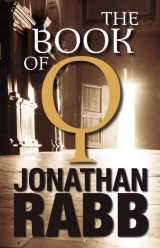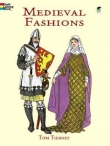
Текст книги "The Book of Q"
Автор книги: Jonathan Rabb
Жанр:
Триллеры
сообщить о нарушении
Текущая страница: 23 (всего у книги 28 страниц)
Bible stories for the Brotherhood, thought Pearse. “Which is your favorite?” he asked.
“‘Kartir in Darkness.’”
“Why’s that?”
Ivo shrugged. “I don’t know. Because he gets swallowed up by the darkness at the end.”
“Kartir?”
Ivo nodded.
From what Pearse remembered, Kartir had been the rough equivalent of a Babylonian Pilate. He wondered how many thousands of other little boys had found Kartir’s demise so compelling.
A troubling thought as the door opened and Petra slid in next to Ivo. He was already on her lap, back pressed into her chest, by the time she pulled it shut. A quick kiss, then back to the vinyl.
“Any problems?” Pearse asked.
“They had a car outside. I took the basement route. Don’t worry, they didn’t see me.” She handed him the book. “And it wasn’t just a box. It was like a little shrine.” The anger in her voice was all too plain. “Statues, pictures…. I have no idea what they were for.” She let her head fall back against the partition, her eyes staring out the window, totally unaware of the effect her tone was having on Ivo. “How could he have done that?”
With tears in his eyes, Ivo looked up at her. “I’m sorry, Mommy. Salko said it was okay.”
She looked at him, at once squeezing her arms around him. “Oh, no, sweetie. I’m not angry with you. I’m not angry with you at all.” She kissed the top of his head.
Ivo’s tears slowed. “Are you angry with Salko?”
“Don’t worry about Salko, sweet pea. That’s nothing for you to think about.”
“Don’t be angry with Salko, Mommy.”
“Okay.” Another few kisses. “I won’t.” After a moment, she looked across at Pearse. “So, is it what you thought it was?”
He continued to stare at the two of them.
“What’s in the book, Ian?” she pressed.
He held her gaze, then turned to the book. “Right. The book.”
Its dimensions were that of a small laptop, though far thinner. Across the top-in Serbo-Croatian-ran the title, Verses for Children, nothing to hint at the Manichaean scriptures within. Opening it, Pearse realized the book had recently been rebound, the sheets inside far older than the cover. The title reappeared on the front page, this time in grander script, a sure sign of nineteenth-century publishing. Confirmation came at the bottom of the page, where the year 1866 was inked in thick lettering. Between title and year-in a single column-ran a list of perhaps eight handwritten names, each from a different pen. It was the last few that caught his attention: Alibeg Mendravic, Vlado Mendravic, Salko Mendravic, Ivo Corkan.
A Manichaean lineage brought to life in the scrawled signatures of four six-year-old boys.
Pearse didn’t know whether to be more concerned with the deep-rooted familial devotion or with the book’s obvious professional quality. This wasn’t something that had been produced in a back room by a bunch of zealots, a hundred or so copies to be distributed by hand. This was something far more serious, clearly published on a much larger scale. And if that was the case with the Serbo-Croatian edition, who was to say how many primers had been produced in German or in English? A far more daunting prospect.
Obviously, the Manichaeans hadn’t spent the last seventeen hundred years simply waiting for the return of their Paraclete.
“I wrote my name,” said Ivo, his little finger reaching over to the page, tracing the lettering. “That’s Salko, and Salko’s dad, and his dad. It goes back a long way.” He looked at Pearse. “You have one with your dad, right?”
Pearse felt that now-familiar ache, his own failure for having allowed Ivo to become a part of this. Or was it merely jealousy, Salko’s bond with the boy made clear in the caress of a tiny hand?
“Right,” he answered distractedly, flipping to the next page as quickly as he could.
The table of contents stared back, a list of stories and prayers, each with its first line printed just below the title. Not surprisingly, the only one he recognized was the Ribadeneyra prayer, appropriately titled, “The Awakening.” The title Treasure of Lifeappeared next to it in parenthesis. He scanned the rest of the page. Each entry sported a parenthetical of its own, several of the titles appearing again and again: Pragmateia, Shahpuhrakan, Book of Giants, Living Gospel, and, most popular, Kephalaia. It didn’t take long to realize that these were the sources for the various verses. Texts thought lost for centuries alive within the pages of a child’s prayer book.
He flipped to “The Awakening.”
As with the “Perfect Light” scroll, tiny sketches of men with daggers and lions on the prowl littered the text. He was about to ask Ivo what they meant, when his eyes stopped on a drawing halfway down the page. At first, he thought it was simply one more triangle-half black, half empty-the ever-present symbol in Manichaean literature. Looking closer, he realized it was far more. Words filled both sides:

Those in the “light” represented the good-the prophets, fruit, wisdom, gnosis. Those in the “darkness,” evil-brothers in conflict, meat, sin, nothingness. A child’s guide to the two realms of the universe.
What Pearse saw, however, astounded him. Half of the words in the triangle coincided exactly with the phrases from the Ribadeneyra entries. It was only their location that puzzled him.
“Hand me my pack,” he said to Petra, his eyes still glued to the page. Ivo quickly leaned forward and picked up the pack; he wasn’t quite strong enough to lift it, Petra lending a hand as he brought it to Pearse’s lap. Staring a few moments longer at the page, Pearse then placed the open book on the dashboard and pulled the papers from inside the pack.
It took him less than five minutes to write out the answers he had deciphered from the one-line through the four-line entries, along with the unsolved five-line verse as Ribadeneyra had written it. He lettered the five separate sections A through E, each with its corresponding line entry. Staring down at the finished copy, he began to see where the Spaniard had been leading him all along.
1. Visegrad A-1 2. Near the awakening A-2 3. Rises A-3 4. When light and darkness meet A-4 5. So do I stretch out my two hands toward You A-5 6. Esau B-1 7. Near the sin of Jacob B-2 8. Becoming B-3 9. Noble bridge B-4 10. All to be formed in the orbit of light B-5 11. Wisdom and piety C-1 12. Over the herbs C-2 13. Opens C-3 14. The Inn C-4 15. When I am sent to the contest with darkness C-5 16. Gnosis strikes wine D-1 17. Floating above D-2 18. Enoch D-3 19. The hills make ascent D-4 20. Knowing that You can assist me in sight D-5 21. Treasure E-1 22. Revealed E-2 23. The enlightener speaks E-3 24. To his disciples E-4 25. The fragrance of life is always within me E-5
The first series was clear enough. “Visegrad, near the awakening, rises when light and darkness meet.” The light and darkness were meeting in the triangle; the triangle was near “The Awakening” in the prayer book; and Visegrad was “rising” from it. Ergo: The triangle somehow represented Visegrad.
Now to the geography of the town. Pearse noticed that the first two or three lines of each set pinpointed different areas in the triangle.
“Esau near the sin of Jacob”-Esau, Peccatum, Jacobus: lower right.

“Wisdom and piety over the herbs”-Sapientia, Pietas, Olera: middle and lower left.

And finally, “Gnosis strikes wine floating above Enoch”-Gnosis, Vinum, Enoch: upper left and right.

Three sides of the triangle.
The last line of each set held the ultimate key. Esau on the lower right became the “noble bridge.” Wisdom on the middle left opened “the inn.” And Gnosis up top defined “the hills.” Three landmarks within Visegrad. Three points of a triangle.

Even without reading the last set, Pearse knew exactly where the “Hodoporia” lay hidden on the map. Where else could it be but with Mani at its center? The treasure revealed in “the enlightener.”
His disciple? The one to solve the mystery.
Like all good Manichaeans, Ribadeneyra had chosen his landmarks well. The bridge, though bombed in the recent war, remained roughly intact. The hills were the hills. The only question was, Where was the inn? Without that third point in the triangle, it would be impossible to locate the center.
“Where can I find an old map of Visegrad?” he asked, tracing the triangle from Ivo’s book onto a separate sheet.
“How old?” Petra asked.
“Sixteenth, seventeenth century.”
She watched him as he continued to draw. “Now where did I leave my sixteenth-, seventeenth-century map of Visegrad?”
Not bothering to look up, he said, “I’m serious.”
“A four-hundred-year-old map? I have no idea. Maybe at the city hall. Why?”
“Because I need to know where something called ‘the inn’ would have been in 1521.”
“At the entry to the old marketplace,” she said matter-of-factly.
“Where the road to Mejdan starts to climb.”
“I said I’m serious.”
“So am I.”
Now, he looked up.
“I promise,” she said.
“How do you know where-”
“Because anyone who grew up in this part of the world knows the story of the old inn. It’s one of the first things you learn in school.”
“In school?”
She turned to Ivo and began to sing: “‘The boy from the hills, when he grew to a man-’”
“‘Was known to the world as the Grand Mehmed Pasha,’” Ivo continued with a wide smile. “‘He gave us the bridge near the mighty Stone Han, from Rade the Mason of the great Turkish Empire.’”
Pearse stared at both of them. “What are you talking about?”
Ivo giggled; Petra smiled. She sang again: “‘So went the wood and the hay and stables, the inn tumbled down by the Grand Mehmed Pasha.’”
“‘Say good-bye to the wood and the hay and the stables,’” sang Ivo. “‘Make way for the Han of the Grand Mehmed Pasha.’”
“The Grand who?” Pearse asked.
“Mehmed Pasha of Sokolovici,” she said in her best kindergarten-teacher voice. “He was one of Suleiman’s viziers.” When she saw no change in Pearse’s expression, she said, “A local boy who made good. Around 1570, he decided he wanted to bring civilization to Bosnia, so he built the bridge, and, with it, the Stone Han-‘the great caravanserai.’ Hence the song.”
“And what does that have to do with the inn?”
“The inn stood on the spot where they built the Stone Han,” she explained.
Pearse began to nod slowly. “But first he tore down the wood and the hay-”
“‘Tumbled down,’” said Ivo.
“Right. ‘Tumbled down.’ Sorry, Ivi.” He waited for a nod. He then turned back to Petra. “And the old inn would have been there fifty years before this pasha decided to be so magnanimous?”
“Well, no one’s really sure when the old inn was built,” she said, “but the legend goes back to at least the early 1400s. That’s why it was such a big deal when he ‘tumbled it down.’”
“So anyone who came through Visegrad, say in 1521, would have known about the old inn?”
“Absolutely.”
Pearse thought to himself for a moment. “Would you be able to pick out the spot where the old inn would have been on a current map of the city?”
“Sure.”
He handed her the pages, the book, and the pack.
Half a minute later, they were on the road to Visegrad.
There was something distinctly non-Vatican about the rooms buried under the library, a coldness in gray steel to repel even a spiritual fire. Peretti had never been to the Gabbiabefore, the place an odd mixture of 1950s nuclear-provisioned and 1990s high-tech-obsessed. Doors several feet thick separated one room from the next, each fitted with an air-lock device, what he could only describe as an iron steering wheel wedged in at the center. They were archaic contrivances, however, when compared to the electronic gizmos that lined the walls, the oncespacious bunker now turned into very cramped quarters. Living areas had become computer rooms, open-atria communications centers.
A base from which to maintain the faith, even in the face of Cold War annihilation.
The only space that retained any link with the city above was the chapel, two stories high, squeezed in at the back of the complex: marble panels camouflaged the steel walls and floors; the flicker of chandeliers replaced the hum of fluorescent lights; paintings hung above the altar-Peretti recognized a Filippo Lippi-a gentle reminder of what they were here to protect; and, along the nave, twin rows of richly grained pews extended to the back wall.
All of them empty save for the nine shaken cardinals sitting alone in silent prayer.
Peretti glanced at the bent figures. They were, for the most part, i vecchii,“the old ones,” cardinals beyond eighty, who no longer voted in the conclave but whose spiritual presence remained essential. It was their age that had saved them, too slow to get back to the Sanctae Marthae in time for the explosions. Little consolation in that. The oldest was Virgilio Cardinal Dezza, long ago Archbishop of Ferrara, a tiny rail of a man with a full head of white hair. Peretti had talked with him just this morning, nothing about the vote (of course), but about the beauty of the Sistine. Dezza had admitted he had always had a certain soft spot for the pagan sibyls on the ceiling-a thought that perhaps Michelangelo had painted them with a little more care, just to get a jab in at old Julius II. It had made him laugh; Peretti had laughed, as well.
Now, Dezza seemed a broken man.
Peretti dipped his fingers in the holy water, crossed himself, and knelt in the aisle. He then made his way to Dezza’s side. The old man’s eyes were closed. Peretti closed his as well and began to pray.
When he opened them, Dezza was looking up at him, a pained smile on his lips.
“Peretti.” He placed a hand on his knee. “You weren’t …” He couldn’t bring himself to finish the thought. “Thanks be to God. It’s a terrible thing. Terrible.”
Peretti nodded.
“And the rest of it,” the old man continued. “Is it a sign? Hail and fire, mixed with blood, falling to the earth. Is He coming?”
Dezza had reached that point in life where tragedy could be understood only as omen. Not unusual for men so long devoted to the church. “Terrorists, Eminence,” Peretti said. He had known Dezza for too many years-first as bishop, then as cardinal-not to call him by anything but his title. “They were bound to find their way into the Vatican at some point.”
The old man looked at him. “But it isn’t just here, Giacomo. It isn’t just the Vatican, is it?”
Peretti wasn’t sure what to make of the expression-a genuine terror or a hint of senility-peering up at him. “The church is strong,” he said. “There are others who will take their places.”
Confusion crossed the old man’s face. “Take their places?” he said. “Even if they’re rebuilt, who will have the courage to step inside one?”
Peretti stared at him for several seconds. “What are you talking about, Eminence?”
“The churches, Giacomo. The churches.”
“What churches?”
“The ones they destroyed,” he said. “Hundreds of them.”
Again, Peretti stared at the old man. “What are you talking about?”
“In the room with the screens,” Dezza said. “It’s all in the room with the screens. The church in flames. Hail and fire, mixed with blood. Hail and fire.” His focus was back on the altar, his hands clasped in prayer. He closed his eyes, the conversation all but forgotten.
Peretti stood, a quick devotion, then back into the maze of corridors that made up the Gabbia. Three minutes later, he found his way into “the room with the screens.” Thirty or so televisions filled the far wall, each one tuned to a different channel. The pictures were all too similar. Destruction on a massive scale. Stepping farther into the room, he saw von Neurath sitting on a sofa, a group of young priests in chairs around him, each one either jotting furiously on a pad or talking on the phone. It was clear who was dictating their every move. Every so often, von Neurath looked up to catch a report on one of the news programs. Otherwise, his energy remained focused on his entourage. It was during one of his quick glances up that he noticed Peretti in the corner.
He turned to him at once.
“Cardinal Peretti,” he said. “They told me you were safe. Thank God you’re alive.”
Peretti remained by the door. “Yes, Holiness.”
“A terrible tragedy, Giacomo. You and I were very lucky.”
When he spoke, Peretti’s words carried no emotion. “Then there must be a reason why He spared us, Holiness.”
The two men continued to stare at each other. “Yes,” von Neurath said finally. “There must.” He turned to the screens. “And then this,” he said. “It’s all quite unbelievable.”
“Yes, Holiness.”
“I thought we had enough trouble with the bank,” von Neurath added, passing a few notes to one of his lackeys. “But I see I was wrong.”
“Trouble at the bank?” Peretti asked, his tone more confirmation than surprise.
“You haven’t heard?” Von Neurath looked up, waiting for a response. When Peretti shook his head, he continued. “Not surprising. I found out myself less than an hour ago.” He turned again to the notes. “It looks as if one of our analysts has placed the bank in a rather precarious position with a group of Syrian investors. It’s Ambrosiano all over again, except this time there’s talk of terrorist funding. I’m not really sure of the details.”
“Remarkable timing, Holiness.”
“Yes. Yes, it is. And they say all of this might be only the beginning.”
“They, Holiness?”
Again von Neurath stopped and turned to Peretti. Pointing to the screens, he said, “They, my son. A thousand churches bombed, every continent, every denomination.”
It was the last word that struck him. “Denomination?” Peretti asked.
“It’s the Protestants as well, Giacomo. And the Greeks and the Russians.” He began to scribble something on a pad. “It seems as if it’s an all-out war on Christianity.”
Peretti waited before responding. “Do they say from where, Holiness?”
“An old enemy,” von Neurath replied, handing a sheet to the man seated across from him. “From the East. Given this new wave of fundamentalism, I suppose it was bound to happen at some point.”
“I see.” Peretti stared up at the screens. It was more than just destruction he saw. Groups had already begun to rally, outraged men and women waiting to unleash their venom, not a pastor or priest in sight to calm them. Blood lust left to run wild. He turned to von Neurath. “Then we must do what we can to ensure that our church remains strong, Holiness.”
Again, von Neurath looked over at him. “Yes. We must.”
An explosion on one of the screens drew the attention of everyone in the room. Peretti took it as his cue to leave.
He let himself stand in the corridor for a moment, the enormity of what he had just seen and heard quickly relegated to the back of his mind. An all-out war on Christianity. Orchestrated from within the Vatican? If so, it meant that the last place he should be was inside its walls. Peretti headed for the entrance.
A pair of guards stood silently by the door, a third at a desk, all three with guns at the ready. Peretti approached the man at the desk. The guard recognized him at once and stood.
“Is something wrong, Eminence?”
Peretti shook his head quickly. “No, but I need to leave the Gabbiafor a few minutes.”
“That’s not possible, Eminence. It’s still not safe.”
“Then when will it be safe?”
The question seemed to fluster the man momentarily. “I … would imagine once the City has been secured, Eminence.”
“And how long do we think that will take?”
Again, the guard had no answer.
Before he could respond, Peretti continued. “Because if it’s later than tonight’s first Mass, then we have a problem. His Holiness has asked me to retrieve a certain book from the library. For the Investiture of Office.” Peretti was making it up as he went. Von Neurath had become Pope the moment he’d answered the cardinal dean’s question, “Volo aut nolo?” with a resounding “Yes.” That he’d have to wait a few days to have the woollen pallium bestowed on him made no difference whatsoever. Chances were, though, that a young Vatican guard knew none of that. “His Holiness must be ordained as quickly as possible, especially given the situation. It’s a simple task, but we will need that book.”
“Of course. I can send one of my men-”
“Will he know where to find the Ritus Inaugurationis Feudalis Praedicationis?” Not that there was an actual Investiture Proclamation lying around the library-not that such a proclamation even existed-but it sounded reasonable enough.
“Well … if someone tells him where it is.”
“That wouldn’t make any difference. It can’t be handled by anyone but a cardinal. Am I now making myself clear?”
“No. I mean, yes, of course, Eminence.” The man glanced at the two other guards. Both stared straight ahead. No help there. He looked back at Peretti. “You mean he isn’t Pope yet?”
Peretti waited, then responded. “I can stand here and have this conversation with you for as long as you like. But at some point, you’re going to have to open that door and let me get the Ritus.”
“But His Holiness-I mean His Eminence …” The guard leaned over the table; in a whisper, he said, “Cardinal von Neurath said that no one was to leave. He gave an express order.”
Peretti leaned in, as well. “Well, until he’s Pope, that order carries no more weight than my own, now does it?”
The guard needed a moment for that one. With a newfound resilience, he walked to the door, punched a few numbers into a keypad, and watched as the air lock released. “You,” he said to the man nearest him. “Go with His Eminence. Gun cocked at all times. Understood?”
“Yes, sir.”
The guard turned back to Peretti. “And if you could, Eminence, come back as quickly as possible.”
“Of course,” said Peretti. “I want to keep myself as safe as I can.”
The bookshop had all the tourist trappings: picture books on the bridge, postcards, even a few coffee mugs. Ivo had been particularly interested in a scale model of the bridge, the dust on the box saying more about the region’s recent history than any number of news stories could have. The man at the cash register had virtually beamed at the sight of the three of them perusing the stacks, less enthusiastic when Petra had pulled a map from one of the shelves and moved them to the back of the store. No need to be by the windows. Not that she expected Salko’s friends to be prowling the outskirts of town-less so a bookstore-but she’d done too much to make their arrival as inconspicuous as possible to jeopardize those efforts now.
They had stopped in Ustipraca-a town halfway between Rogatica and Visegrad-Petra friendly enough with the shopkeepers to rummage for something a little more provincial: long skirt and kerchief for her, coat, brimless cap, and a new pair of boots for him, along with a bundle of cloth put together to look like an infant in her arms. Three became four with a small blanket and a few pages of newspaper crumpled up inside. Most bizarre was her insistence that Ivo don a girl’s long skirt and kerchief of his own. He’d giggled his way through it all, Pearse thinking it a bit much, until he’d looked at all of them in a mirror. By then, she’d applied some stipple from a child’s makeup kit to his face, five days’ growth of beard to add to the image of the nondescript Bosnian family. Pearse had had trouble recognizing them himself.
Now, gazing at a map of the town, and acutely aware of the few other customers in the shop, he was grateful for the camouflage.
“There,” whispered Petra, pointing to a spot on the map. “The old inn would have been there.”
Pearse pulled a sheet from his jacket and placed it above the map. Tracing the inn, bridge, and hills, he marked an X for Mani’s location in the original triangle. He then peeled the page back.
“That can’t be right,” he said as he stared down at the area.
“That’s where the inn-”
“It puts him in the middle of the river,” he said, trying it again so as to make sure he hadn’t miscalculated.
“Let me see,” she said, taking the map.
Pulling the tracing away, Pearse pinpointed the three landmarks. “There, there, and there,” he said. “Which puts Mani there,” he added, his finger in the middle of the Drina.
“That can’t be right.”
“I just said that.”
Her eyes still on the page, she asked, “Which are your three landmarks?”
Trying not to show his frustration, he said, “The bridge, the hills, and your inn, which obviously wasn’t where you thought it was.”
When she looked up, the expression on her face only served to annoy him further.
“What?” he said.
“I’ll give you the inn and the hills, but you’ve got the wrong bridge.”
“What?”
“1521, Ian. The great bridge wasn’t built until fifty years later. Remember the song?”
Pearse didn’t answer.
“It’s the bridge over the Rzav River, not the Drina,” she said. “That’s the one your Manichaean was referring to.” She placed her finger on the map. “The Rzav is the other river in town, which happens to be there.”
Pearse brought the tracing up to the map. Angling it so as to accommodate the new landmark, he saw where Mani’s X had come to rest. Nowhere near the Drina. Luckily, there was only one site of interest in the vicinity, the name all too obvious as Pearse thought about it.
“‘ Izvor za Spanski,’” he read. “Ribadeneyra was obviously more homesick than he let on.” He turned to Petra. “What’s a Spanish fountain doing in Visegrad?”
She looked more closely at the map. “It’s in the Cetvrt za Jevrejin, the old Jewish Quarter.”
Pearse began to nod. “Makes sense. A lot of Jews came east after the Spanish Expulsion. It’s the right time frame. They must have built it as some sort of memorial.”
Before he could ask, she said, “About fifteen minutes from here.”
He carried Ivo, she the “baby,” the streets relatively quiet for the late afternoon. The farther on they walked into town, however, the more the place began to fill, stores reopening after the protracted midday nap, more bodies on the streets to make Pearse feel a bit more comfortable.
It was when they reached the old marketplace that he recognized the first of the outsiders, men flaunting their conspicuousness-receivers with wires attached to their ears, handheld radios, not to mention the telltale dark suits of Vatican security. None of them seemed to notice the stares from the locals.
Pearse started to turn down a side street so as to avoid them, when he felt Petra slip her arm through his. She began to lead him directly toward one of the Vatican men.
Instinctively, he began to tug her back the other way. Almost at once, he stopped, aware that the movement would only draw more attention.
A numbing sensation began to course through his legs and torso as they drew closer to the man. In that instant, he knew only the betrayal: I’m no good with Latin… You’re frightening me. He had shown her where the “Hodoporia” was. There was no need to keep up the pretense any longer, no need to lead him around by the nose. Of course she had known what Salko was teaching her son. Of course she had been a part of it all along. How could I have been so stupid?
They were within a few feet of the man, Pearse ready for the final Judas kiss, when Petra simply glanced at the man, then continued moving on. With his heart pounding, Pearse moved on, as well.
“It’s only if you look like you’re trying to avoid them that they’ll notice you,” she said when they were out of earshot. “They’re not looking for a family of four with a seven-year-old girl, remember? If we’d gone down that side street, we’d be running for our lives right now.”
The best Pearse could do was nod.
He was still breathing heavily when she led them up into an area of town where the houses were packed in tighter together, narrow streets making it difficult for the sun to break through.
“I though for a minute back there-”
“I know,” she answered without looking at him. “Remember, you have to trust me.”
The moment in the village repaid in full.
They walked along the cobbled shadows for several minutes until she turned down a short alley-no sign of the Vatican faithful this far off the beaten path. Following the curve of the passageway, they came into a small courtyard of dirt and grass.
“‘ Izvor za Spanski,’” she said.
Pearse stood there, staring at the small fountain at its center. All was forgiven.
The square itself was perhaps thirty yards in either direction, the buildings along the perimeter sagging under the weight of ancient stone and wood. No more than four stories high, they looked to be resting against one another, squeezing out what little support they could as they peered out into the courtyard. Two trees stood at the opposite corners, wide branches filled with leaves to blanket the square in even deeper shadow. A group of children was playing soccer in front of one of the more ancient houses, its decay helped along by the constant thumping of the ball. None of them seemed to notice as the small family neared the fountain.
Drawing to within ten feet of it, Pearse stopped again. He was hoping that, with the “Hodoporia” so close at hand, he might reclaim that same sense of wonder he had known at Photinus; instead, all he felt was a strange kind of ambivalence. Not that he was any less drawn to the promise of clarity, but somehow it seemed tied to a part of himself that sought release in isolation. And that no longer made any sense to him.
He placed Ivo on the ground, took his hand, and together they began to circle the fountain. A second memory of Photinus fixed in his mind-Gennadios scooping handful after handful of water to his soaked neck-a thought that perhaps Ribadeneyra had chosen the fountain not for its reminiscence of home but for its uncanny resemblance to the one on Athos. The only significant difference was that this one hadn’t seen water in quite some time: cracks lined the inner pool; once-green algae deposits had turned an inky black; and, at the top, where the Photinus spout had sported a monk in prayer, here the figure was a man looking back over his shoulder. Pearse noticed that, at one point, the water had streamed from the top of his head, a fitting stain now on his cheek, perhaps the last tears for a country he had been forced to leave behind.
Pearse couldn’t help but wonder if he might be looking up at old Ribadeneyra himself.
Compelling as it was, there was nothing to indicate where a Manichaean might have chosen to hide his stash in the stone. And given its contents, Pearse couldn’t imagine that the Spaniard had picked a spot anywhere near the water. He crouched down and began to examine the underside of the fountain. Ivo did the same.








